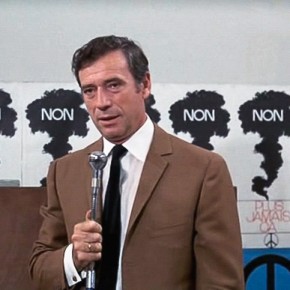Although the fighting among prospective Republican candidates for President in 2016 has been receiving the majority of the media’s attention recently, thanks to Donald Trump, the conflict in Democratic circles may be nastier. Hillary and Bill Clinton may have stored up a lot of goodwill over the years, but a decent-sized percentage of their party still resents them for dragging it rightward in the 1990s.
The candidacy of self-proclaimed socialist Bernie Sanders has energized this anti-Clinton faction. Even if Sanders himself has little chance of winning the general election, they reason, the strength of his progressive platform will either force Hillary left or open up a void for a more electable Democrat to exploit.
It’s the latter prospect that most worries the Clinton team. They are fairly sure — perhaps too sure, given what transpired in 2008 — that pragmatism will eventually lead many current Sanders supporters to betray his upstart campaign. The inevitable turnover coming to the Supreme Court is reason enough to fear having Republicans in charge of both Congress and the White House. But they also sense a rising anger in their base, particularly public sector employees battered by the downsizing of state and local governments, that will not be assuaged by more pandering to Wall Street.
For these unhappy Democrats, there is a clear continuum between the Clinton White House of the 1990s and the Obama White House of today. For all their accomplishments — not least of which was being branded “socialists” by the Right — both can be critiqued for permitting an ideological bait-and-switch operation, in which the rhetoric of the 1960s is used to sell the Realpolitik of the post-Reagan Era. No matter how personally compelling Bill, Barack, Hillary and Al Gore may be, no matter how much they deserve respect for weathering brutal conservative attacks, they have presided over the dismantling of the very institutions that the Democratic Party is supposed to protect.
Even the Affordable Health Care Act, which followed through on the promise of Hillary Clinton’s efforts during her husband’s first two years at 1600 Pennsylvania Avenue, can be considered part of this deceit, since it is turning the gears of Federal bureaucracy to benefit insurance companies even more than the at-risk groups it was ostensibly created to serve. On the issues that Democratic voters who aren’t wealthy care about most, their centrism feels like butter scraped over too much bread.
That’s why Bernie Sanders has made such a strong showing so far, as his candidacy taps into the reservoir of resistance that gave rise to the Occupy movement back in 2011. And it’s why he is being viciously attacked for being a clueless white progressive, unwilling or unable to recognize the role that racism plays in contemporary American society.
It doesn’t matter whether Sanders has legitimate reasons for prioritizing economic concerns over everything else. The fact that he has been reluctant to mobilize the post-Civil Rights Movement commonplaces that both Bill Clinton and Barack Obama — though in different ways and for different reasons — have repeatedly used to consolidate their support in the Democratic Party is being treated as evidence that he doesn’t understand what people of color need or want. Nor does it help that this reluctance has manifested itself at a time when every month seems to bring a new high-profile case of police brutality in which white officers have done unconscionable things to black and brown men and women.
To be sure, Sanders’ insistence on not straying from his populist talking points can be read as a sign of virtue. There’s something admirable about not clambering onto the bandwagon, even when doing so would strengthen your candidacy. But that is not what is happening. Whether Hillary’s campaign is directly influencing the mainstream media or merely benefiting from a preference for the tried and true, there is little doubt that an effort to sabotage Sanders from within the liberal camp is well underway.
Even considering the argument that ending racism will require ending capitalism first is reason enough to be tarred and feathered as an example of white privilege. With Republican candidates seemingly going out of their way to antagonize as many people of color as possible, the clearest path for a Democratic victory in 2016 is one that exploits the legacy of white supremacy in order to inspire African-Americans and Latinos to cast their ballots.
Although it may be true that both groups are held back primarily by economic disadvantages, supporters of Hillary Clinton have a strong interest in making it political suicide to say out loud. They stand to benefit from preventing Democrats from thinking about racism and capitalism together. Perhaps it is unfair to ascribe such cynical motivations to them. In the end, though, it doesn’t matter whether they believe in this separation or are merely seeking to instrumentalize it. Either way, the segregation of outrage will prevent the destabilization of the social order that the party’s wealthy donors fear most.
Commentary by Charlie Bertsch. Photographs courtesy of Joel Schalit.






